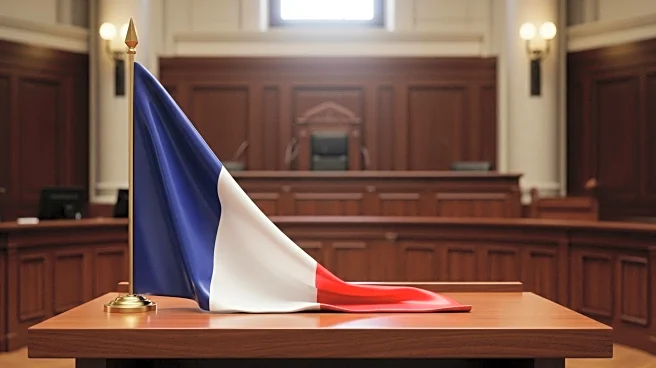What's Happening?
French President Emmanuel Macron and his wife, Brigitte Macron, are set to present scientific and photographic evidence in a US court to counter claims made by conservative influencer Candace Owens. Owens alleged that Brigitte Macron was born male and transitioned later in life. The Macrons have filed a defamation lawsuit against Owens in Delaware, asserting that her claims are false and defamatory. Their attorney, Tom Clare, has indicated that the evidence will include expert testimony and photographs of Brigitte Macron during her pregnancies. The lawsuit follows similar allegations made in France, which were initially ruled in Brigitte Macron's favor but later overturned on appeal.
Why It's Important?
This case highlights the intersection of defamation law and public figures' rights to privacy and reputation. The lawsuit could set a precedent for how courts handle defamation claims involving high-profile individuals and unsubstantiated allegations. The outcome may influence public discourse and the responsibilities of influencers in disseminating information. Additionally, the case underscores the potential impact of misinformation on personal and professional reputations, particularly for public figures like Brigitte Macron.
What's Next?
The court proceedings will involve the presentation of evidence by the Macrons, including expert testimony and photographic documentation. The case may attract significant media attention, given the involvement of high-profile individuals and the nature of the allegations. The decision could have implications for similar defamation cases and the accountability of influencers in spreading unverified claims. Observers will be watching for the court's ruling and any subsequent appeals.
Beyond the Headlines
The lawsuit raises broader questions about the ethical responsibilities of influencers and the impact of social media on public perception. It also touches on issues of gender identity and the societal challenges faced by individuals in the public eye. The case may prompt discussions on the balance between free speech and the protection of individuals from harmful and false narratives.









